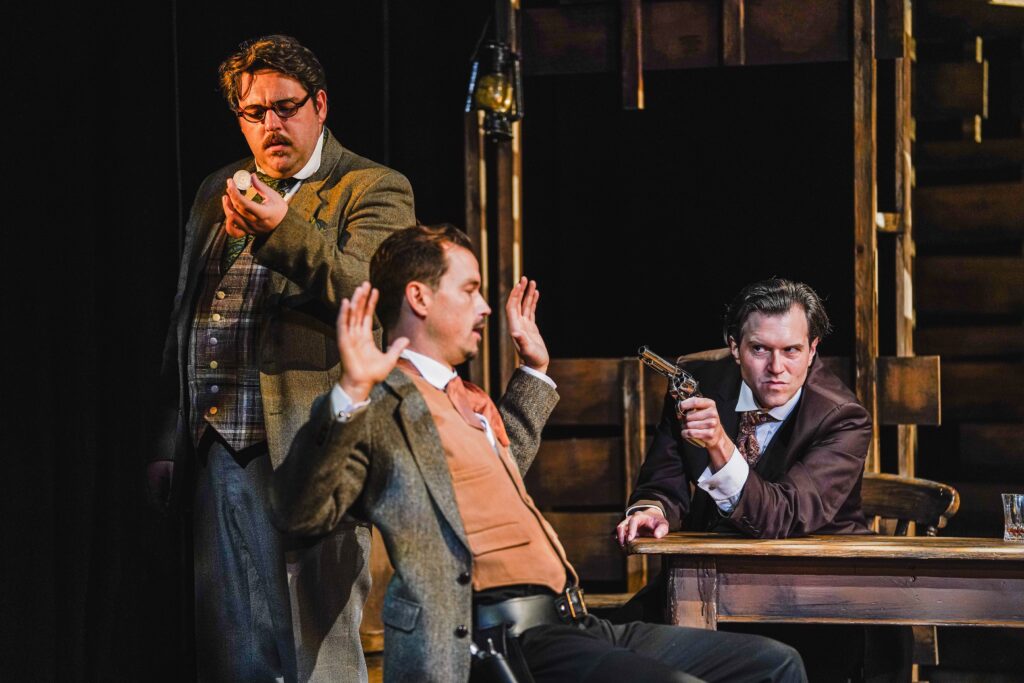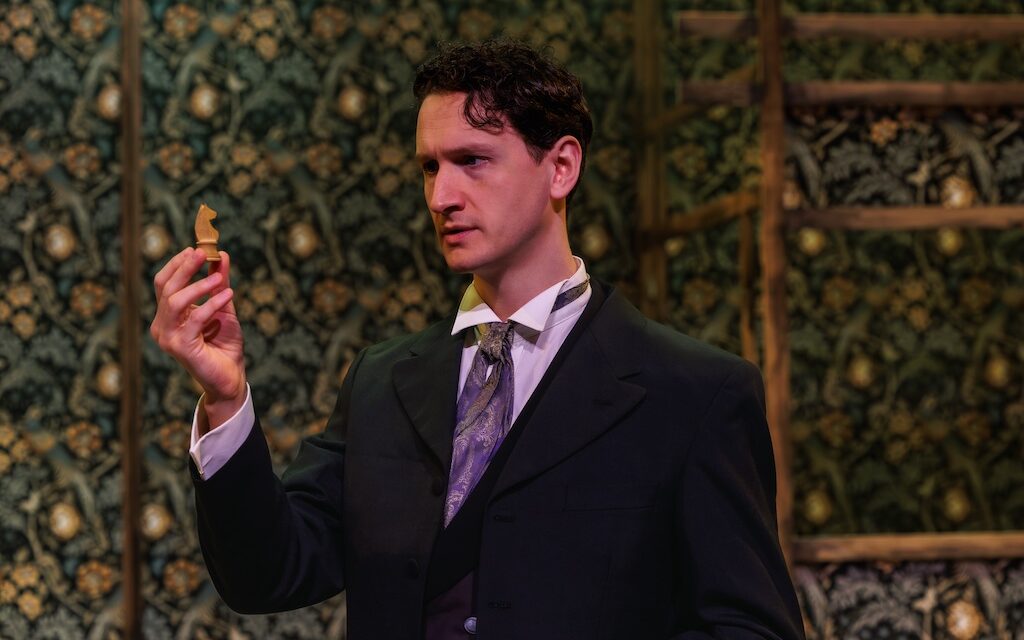
16 – 20 April
The dangers attendant on the translation of a literary work of fiction to the stage are various. Perhaps chief amongst them is the assumption that a winning style in the former will capture the imagination of an audience in the latter. The shift from ‘telling’ to ‘showing’ is one that must be uppermost in the adaptor’s mind and something the director does well to recognise.
As audiences we allow for the tension to drop occasionally whilst in the grand scheme of things a structure is being built. Jeopardy in a drama, like the sauce in a fine meal, is something to be used to bring the whole together and add an element of interest. However when the sauce is omitted from a meal we can be left with nothing more than a collection of unconnected morsels. Similarly, where jeopardy and its bedfellow tension are absent from a stage play, unless there is something else to hold our interest we have little more than a collection of incidents. Worse still, when the incidents are largely related second-hand by actors gazing into the auditorium we may be tempted to think we have turned up merely to be told a story. Even the entrance of Moriarty himself, with a lightly veiled threat to Dr Watson (Joseph Derrington) wasn’t enough to raise the temperature.
In this adaption of The Valley of Fear we find ourselves flitting between the incipient organised crime in 19th century Pennsylvania and the Victorian comfort of Baker Street where Holmes (Bobby Bradley) has become exercised by an unexplained death prefigured in a cryptic message sent to his Baker Street apartment. I confess that for the whole of the first act I was baffled as to what was going on and how the two strands were connected. Indeed the opacity of the plot was maintained until virtually the last page when (no spoiler) the dastardly hand of Holmes’ nemesis, Professor Moriarty, loomed out of the fog.
In addition to the two strands of the plot there is a further thread in the form of the relationship between Holmes and Watson. Had there been any tension in the story this might have been a welcome relief, but as it turned out it was a mere distraction in dramatic terms.
There’s nothing wrong with the acting in this production; all the cast, Mr Bradley included, dip into the character bin and pull out a number of well defined and serviceable roles that fit the bill as required.
Holmes aficionados may well be less flummoxed than this reviewer and be happy to add this to the ever burgeoning list of the great detective’s stage adaptations.
★★☆☆☆ Graham Wyles, 17 April 2024
Photo credit: Alex Harvey-Brown


